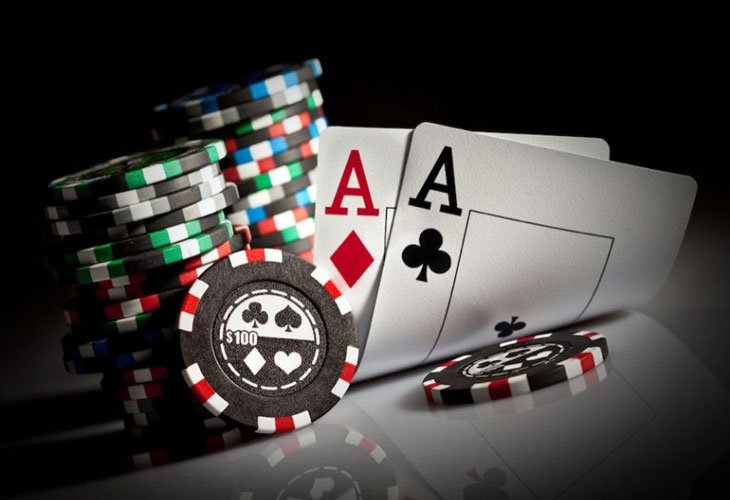Gambling creates a special environment where reason competes with intuition, and strategies give way to instincts. In such circumstances, omens in gambling games emerge and take root. The psychology of uncertainty pushes players towards symbols, rituals, and signs that promise luck or, conversely, warn against risks. Traditions, superstitions, and personal observations transform each bet into something more than just a calculation. The variety of beliefs is staggering — from lucky socks to avoiding certain card combinations.
Omens in gambling games have long transcended mythology and become a cultural layer in the entertainment industry. Different types of players form individual belief systems, where each action before the start of a session takes on special significance. Why do some participants avoid tables counterclockwise? What does spilled salt in a casino hall signify? What to do if a slot machine gives three consecutive wins? The answers are shaped not by logic, but by experience, observation, and a constant search for patterns in chaos.

The Origins of Belief: How Omens in Gambling Games Emerged
Superstitions associated with entertainment originate from the rituals of ancient cultures, where the outcome was considered a gift from the gods or intervention of fate. Omens in gambling games continue the same tradition, only in a more utilitarian form. Players create a system of references where each repeated gesture, word, or object is imbued with meaning. The higher the uncertainty of the bets, the stronger the inclination towards beliefs.
Historical examples include specific rituals: in Vegas in the 1970s, dealers would place aces face down in a blackjack game, considering them a source of bad luck if dealt first. The practice disappeared, but the superstition remained. In Europe, players refused to change cards in poker if the previous combination brought a win — a superstition associated with disrupting the “lucky energy.”
Catalog of Popular Beliefs: From Funny to Serious
Omens in gambling games form a whole cultural layer, where universal and local beliefs stand out. Some are perceived with humor, others with fanatical seriousness:
- Entering a casino with empty pockets is forbidden. It is believed that empty pockets attract losses. Casino superstitions link emptiness to the absence of money energy.
- Not recounting chips at the table. Many believe that any touch to the winnings activates Fortune’s attention, and she will take it back.
- Whistling is prohibited. Casino traditions equate whistling to driving away luck. This is especially strict in Asian establishments.
- Red means profit. Players prefer to wear red shirts or underwear, believing that this color attracts winnings and activates Fortune.
- Leaving the first won chip untouched. Lucky charms in casinos are formed on the spot. The player leaves the first profit as a talisman and does not put it back into the game.
- Switching to another table means resetting bad luck. Losing at one table prompts a change of place. It is believed that another slot or roulette wheel did not have time to “remember” the negativity.
- Not sitting in the same place twice. Omens in gambling games speak of the “burnout” of a lucky spot — sitting again in the same chair supposedly disrupts the past energy of winning.
- Avoid looking at the clock. The belief that time control disrupts the flow is particularly strong among roulette and blackjack players. Disconnecting from reality is part of the ritual.
- A specific gesture before a bet. Many perform a short tapping on the table, rub the chip, or make circular hand movements. This is a way to “charge” the bet.
- Not taking change after an exchange. It is believed that change “dilutes” luck, and if left at the cashier, all winnings will go with clean energy.
Psychology of Belief: Why Players Attach Special Significance to Omens in Gambling Games
The behavioral model of a player is formed at the intersection of rational analysis and irrational hope. Omens in gambling games rely on an attempt to explain random events through the logic of subjective experience. Psychology perceives such actions as a mechanism for adapting to stress. Faced with a high degree of uncertainty, a player seeks to reduce anxiety by creating rituals.
The formation of a stable ritual occurs after several coincidences. A participant wears the same socks before a poker session, wins once — the brain associates the win with the clothing detail, not with real chances or moves. Casino superstitions activate the pleasure center — the area of the brain responsible for dopamine production. This enhances the internal feeling that the omen really works, especially if it coincides with a victory.
Omens and Types of Gambling Games: Where Belief Is Particularly Strong
Omens in gambling games transform depending on the type of game. Each discipline brings its own characteristics to how players perceive luck, loss, and signs.
Slots
Slot players often believe in the “mood of the machine.” There is a conviction that a slot can be “cold” or “hot.” Omens related to the order of play work in this context — for example, not sitting at a machine that someone has just lost on. Rituals include tapping the button three times or mandatory restarting the machine after 3 losses.
Roulette
In roulette, omens in gambling games are reinforced by the cyclical nature of sessions. Participants monitor the colors and numbers that come up, count sequences. Beliefs like “after three reds, there will be black” or “if the ball has landed, don’t bet” emerge. Superstitious players try to sit in a “lucky spot” — where they saw another participant win big.
Card Games
In poker or blackjack, beliefs take on a more personalized character. Players associate luck with their position at the table, the order of dealing, or specific card manipulations. For example, some players turn cards in a certain way to “not scare off” Fortune. Rituals related to tipping the dealer are also popular: it is believed to increase the chances of a positive outcome.
Regional Specifics: How Geography Influences Omens
Cultural context determines which omens in gambling games take root in a specific country or region. Eastern countries attach special importance to numbers. In China, the number 8 is associated with wealth, and participants strive to place bets containing this digit. Western players avoid 13 — considered an unlucky number.
In Latin America, rituals involving sprinkling chips with holy water or placing an image of a saint on the slot screen are widespread. In Eastern Europe, superstitions are combined with pagan motifs: placing a coin under the heel is seen as a way to “ground” the winnings. Omens in gambling games in such cases bridge the gap between cultural heritage and individual habit.
Stable Rituals: How Players Incorporate Omens into Strategy
Many players turn omens in gambling games into well-structured behavior algorithms. Actions go beyond momentary impulse and become a routine part of preparation and the session itself. Repetition turns superstition into pseudo-strategy — replacing mathematical logic with personal experience.
Often, a ritual begins with the first successful session. If a victory occurred with a specific song in headphones, the player starts playing it before each new bet. If a win came in a green shirt, the clothing becomes part of the “mandatory gear.” Such behavior is reinforced by neural connections — intensified by dopamine, creating the illusion of control.

Rituals also involve physical actions: sitting in a specific pose, crossing oneself three times before starting a slot, holding a chip in hand for exactly 5 seconds before betting. In case of success, the player perceives it as a pattern. If losing, they believe they have violated their “luck code.”
The Line Between Belief and Self-Deception
Omens in gambling games create a parallel reality where a player not only relies on chance but seeks to control it. Belief in luck, signs, talismans, and rituals turns a session into something more than just mathematical probability. It becomes part of identity, a way to maintain composure, and even an explanation for defeat. The balance between psychological support and dangerous self-deception remains a key issue. Attitude towards omens is a personal choice, but understanding their mechanism allows control not only over luck but also over the gaming process.
 en
en  de
de  ar
ar  es
es  hi
hi  fr
fr  nl
nl  it
it  pt
pt  el
el 









